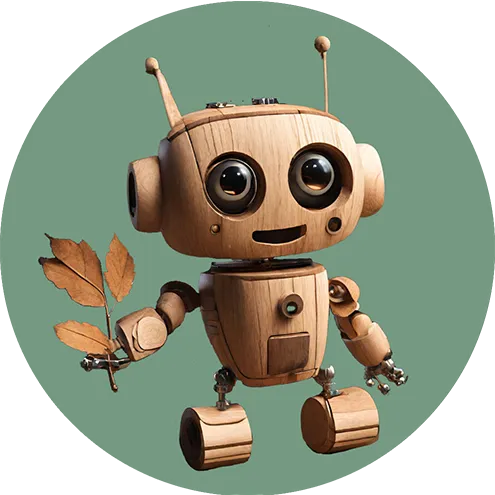Recently we spent a day on a social enterprise founder's site, and got her to the top spot on Google Search within a week. Another week later, visitors had increased 44%, revenue had increased 52% and the average order value was up 78%.
More importantly, she started reaching people who desperately needed his service but had never heard of it before.
Here's what we did, and why you probably need to understand SEO, GEO, and AIO too.
SEO, GEO, and AIO get you to the top of search engines and AI results. Getting it to work involves changing the words, images and code on your website to make it search and AI-engine friendly. Launchbot does it for you with the free Get Found Online tool - try it now.
If you're running a business, impact organization or social enterprise, you're solving real problems for real people. But the best idea in the world has no impact if people can't find it. That's where these three optimization strategies come in.
SEO: Getting To The Top Of Search Engines
Search Engine Optimization (SEO) is about making sure your website appears when someone searches Google for the problems you solve. Despite all the algorithm changes and panic-inducing marketing headlines, Google's core principles haven't changed: it looks for fresh, knowledgeable, and popular content that matches what people are searching for.
The reality is simpler than most consultants want you to believe. People with the problems you solve aren't searching for your organization's name – they're searching for solutions. If you run a financial literacy program for refugees, they're probably not googling "financial literacy program." They're searching for "how to open bank account new immigrant," "cheap money transfer," or "budgeting app Arabic."
Start with Google Trends to understand what your audience actually searches for. Put yourself in their mindset. What keeps them up at 3am? What questions are they asking in Facebook groups? Those are your keywords.
Here's what works:
- Write regular blog posts (even 300 words monthly is fine) that answer these real questions
- Use natural language – no keyword stuffing
- Include credible sources and link to them
- Share your content everywhere your audience hangs out, from LinkedIn to community WhatsApp groups
The goal isn't gaming the system. It's about making sure when someone needs what you offer, they can find you.
GEO and AIO: The New Players
Here's where it gets interesting. Generative Engine Optimization (GEO) – also called Answer Engine Optimization (AEO) or AI Optimization (AIO) – is about showing up in AI-powered search results. When someone asks ChatGPT, Claude, or Google's AI overview "what organizations help with housing insecurity in my area," you want to be in that answer.
This isn't replacing SEO; it's extending it. The same principles apply – fresh, authoritative, helpful content – but now you're also optimizing for AI systems that summarize and recommend solutions.
The shift is already happening. Google's AI overviews are appearing in search results, and people are increasingly asking AI assistants for recommendations. If you're not showing up in these AI-generated responses, you're missing potential community members who need your help.
Do You Actually Need This?
Let me be direct: if you're trying to reach people beyond your immediate network, yes, you need this. Here's why it matters for impact work specifically:
Your audience is searching differently now. They're not just typing keywords into Google. They're having conversations with AI assistants, asking complex questions like "I'm a single mother struggling with debt, what free resources are available in Auckland?" If your organization helps single mothers with debt in Auckland but you're not optimized for these AI systems, you won't appear in the answer.
Trust is everything in impact work. When AI systems recommend your organization, they're essentially vouching for your credibility. Being included in these recommendations signals authority and trustworthiness to people who might be skeptical of getting help.
Resource efficiency. You're already creating content – impact reports, blog posts, case studies. Optimizing this content for both traditional search and AI systems means getting more reach from the same effort.
The Practical Approach
Don't overthink this. Start with three simple steps:
First, review what you're already doing. Are you regularly creating content that answers your community's questions? If not, start there. A monthly blog post beats no blog post.
Second, expand your content to be more conversational and comprehensive. Instead of writing "Our Housing Program," write "How to Find Emergency Housing Assistance When You Have Nowhere to Go." AI systems prefer detailed, helpful content that fully addresses someone's query.
Third, make sure your content clearly states who you help, where you operate, and how people can access your services. AI systems are great at matching people with specific, actionable solutions.
What This Means for Your Mission
We're in a fascinating moment. As data-hungry AI systems make parts of the internet feel more commercial and artificial, there's a growing hunger for authentic community connections. People are craving real solutions to real problems, delivered by organizations that actually care about outcomes, not just profits.
This creates an opportunity for impact organizations. While corporations optimize for clicks and conversions, you're optimizing for genuine help and community transformation. That authenticity resonates both with human audiences and increasingly sophisticated AI systems that are getting better at recognizing quality content.
The question isn't whether you can afford to invest time in SEO, GEO, and AIO. It's whether you can afford not to be found by the people you're trying to help. Every day someone struggles with the exact problem you solve but can't find you is a missed opportunity for impact.
Your mission deserves to be discovered. The digital marketing tools and strategies exist to make that happen. The question is: are you ready to use them? Launchbot does SEO, GEO and AIO for you with the free Get Found Online tool - try it now.
The intersection of technology and social impact is moving fast. Understanding how to optimize your organization's online presence isn't just marketing – it's ensuring your impact can reach its full potential. What questions do you have about SEO, GEO and AIO for business, nonprofits and social enterprises? The conversation about digital marketing for impact organizations is just getting started.












